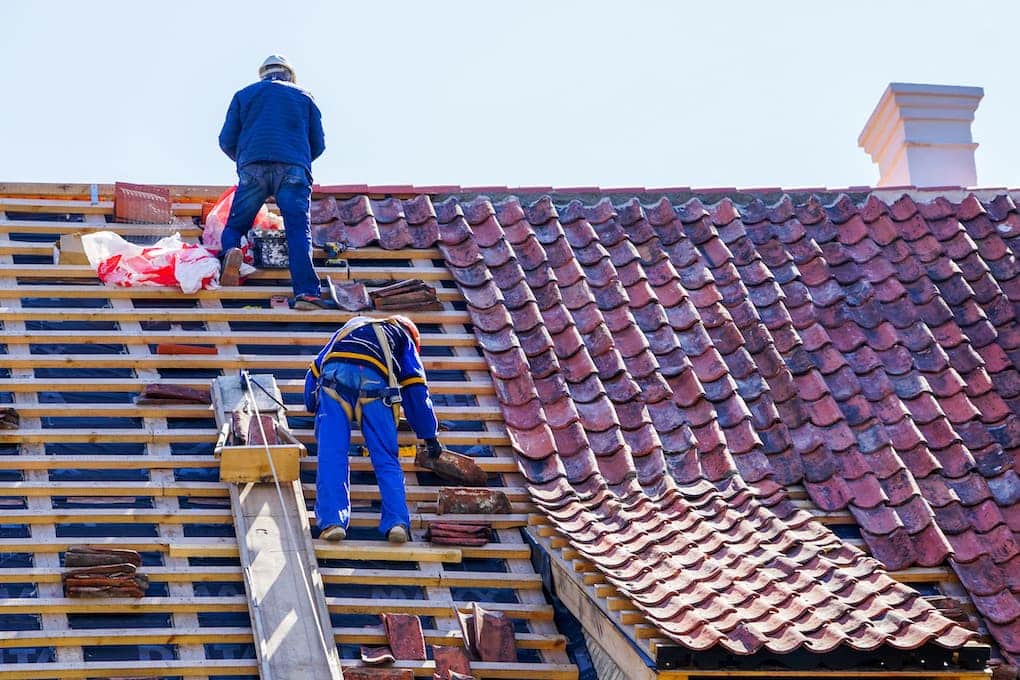Find yourself looking at a total roof replacement? We know what you’re thinking—”How the hell am I going to pay for this?” And to that, we say—don’t panic—we’re here to help.
Many different factors can affect how much a roof replacement costs you, from the materials you choose, whether or not insurance is involved, and how big your house is. Luckily, you can get a very good idea of how much money you’re looking at before you ever even hire a contractor.
Today we’re going to walk you through how much each roofing material may cost for a roof replacement, plus other things to consider before you tackle such a large project. Refer to this handy guide when that time comes, and you’ll be stress-free and ready for your brand new roof.

How Much Does an Average Roof Cost in the United States?
Getting an accurate roof cost without knowing all of the factors and considerations can be difficult. Also, we won’t lie, a roof replacement will be costly, but it’s also one of the most significant investments you can make in your home.
With all things considered, the cost of an average-sized home (1,800 sq. ft.) with an asphalt shingle roof will cost around $12,000 to $15,000.
Asphalt shingles are the most commonly used roofing material in America, primarily due to their affordability. But asphalt shingle roofs are also very versatile and easy to maintain—making them an excellent choice for any homeowner or home style.
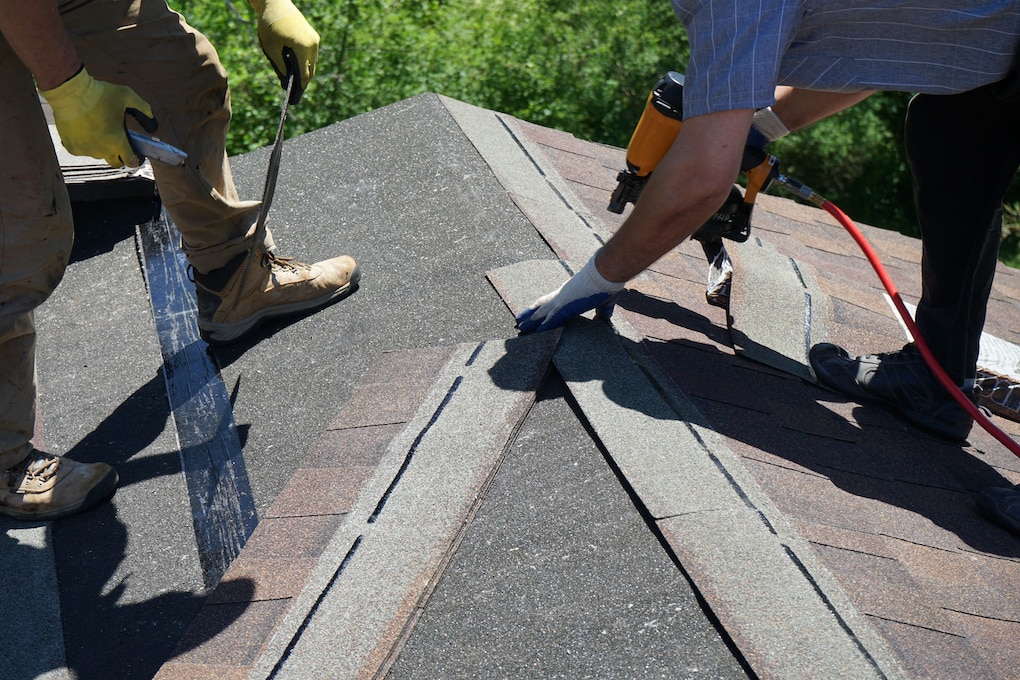
Again, this is just an average estimate. Still, for something more accurate, it’s vital to get with a reputable contractor you can trust to do a thorough inspection and get you an accurate estimate.
Your roof cost will be a culmination of:
- The condition, size, and slope of your current roof
- Which roofing materials you choose
- Where you live in the country
The total cost of the roof will also include labor which makes up about 60% of the total, with 40% being for materials.
Factors That Affect How Much a New Roof Costs
As we mentioned, many things tally up the total cost of your roof replacement. It’s essential to arm yourself with this knowledge beforehand to choose wisely and budget accordingly. Things that can raise or lower your total roof replacement cost include, but are not limited to, the following.
The Size of Your Roof
The size of your roof plays a major factor in the overall cost of your roof replacement. First, the cost goes up because you simply need more materials for the roof, but also it will take longer, thus raising the cost of labor. It won’t affect the cost as drastically as other things, but it’s important to note that the cost will be above-average if you have a huge roof with many peaks and valleys.
The Roof’s Pitch
Your roof’s pitch, or slope, complicates the installation of the roofing materials. So, not only does it become harder to haul things up the roof, but it creates a more hazardous environment for the roofing contractors. This cost increase will likely be applied when you have a very steep roof.
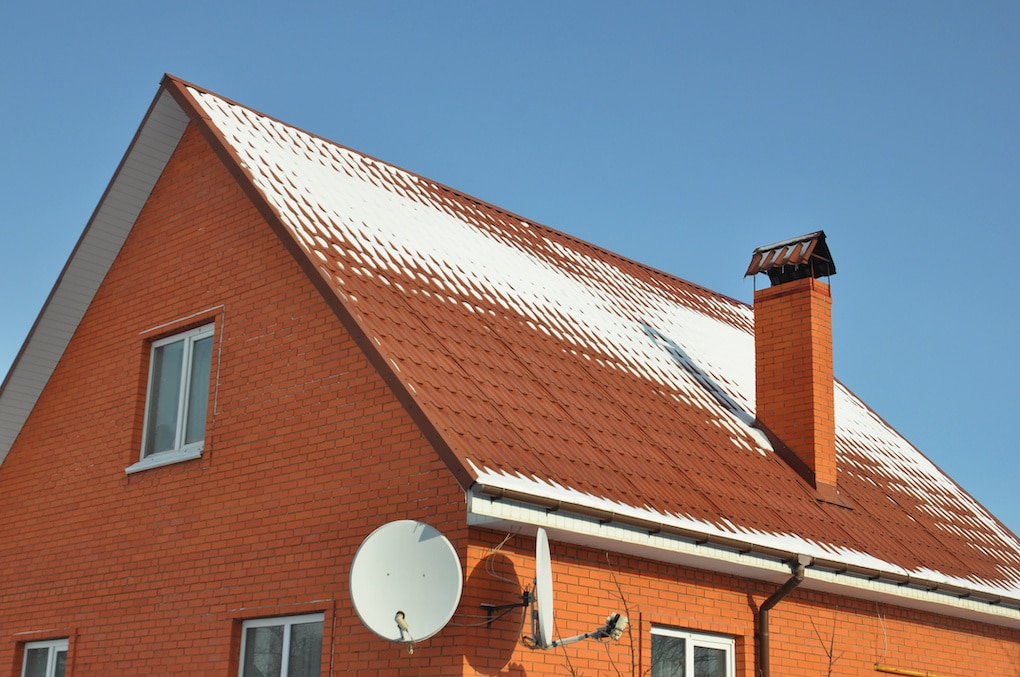
The Condition of Your Existing Roof
When you get a roof replacement, the contractors will tear off the old roof to make room for the new one. If your old roof was in decent shape, chances are it also protected the materials and roof decking underneath. This makes it easy for your new roof to get installed on top without any fuss.
However, if your existing roof was in poor condition and was cracked or sagging in places, this can halt the process. Before a new roof is installed, the roof decking and your overall roof need to be repaired and conditioned to handle the new shingles or roofing materials. This can add time, energy, materials, and additional repair costs to your total bill.
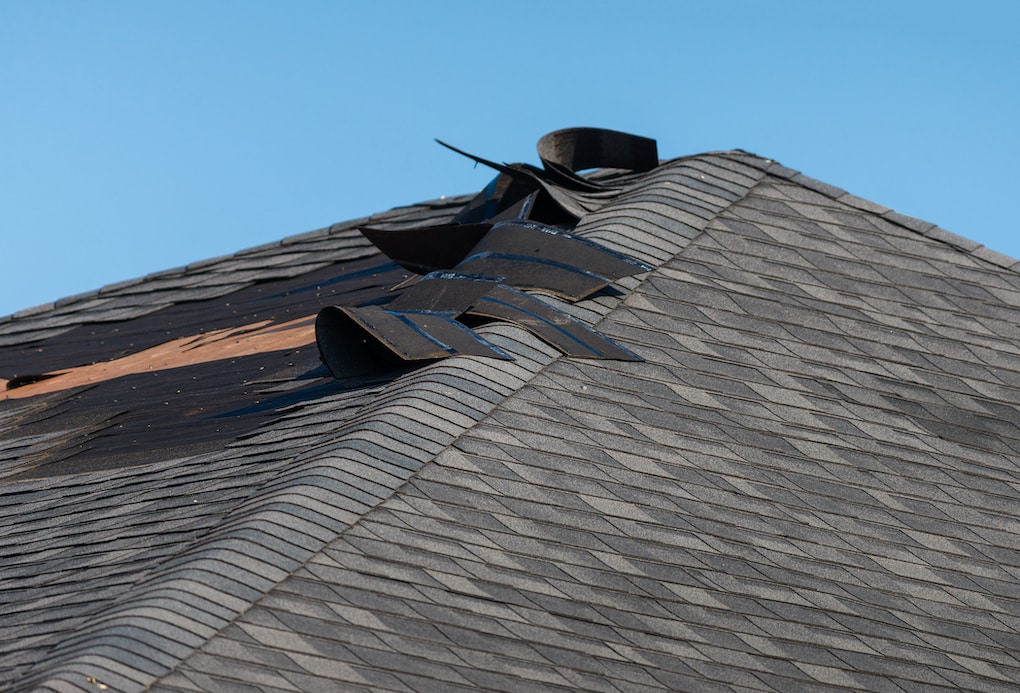
The Type of Roof You Choose
Your roofing material is probably the biggest factor that can make or break your roof replacement cost. Roofing materials like asphalt shingles are much more affordable than premium options like slate or clay tile. The total cost of your roof can vary by tens of thousands of dollars depending on the type of material you choose, so it’s good to know all of your options before you decide.
The State or Climate You Live In
Different states have different climates for installing roofs. There may be a smaller window of time to install roofs in places that experience harsh winters or even hurricane and rainy seasons. So you may see higher labor costs in weather that is less than ideal.
Also, different states will have different fees, taxes, materials costs, and other list items that can increase how much the roof replacement will cost in the end.
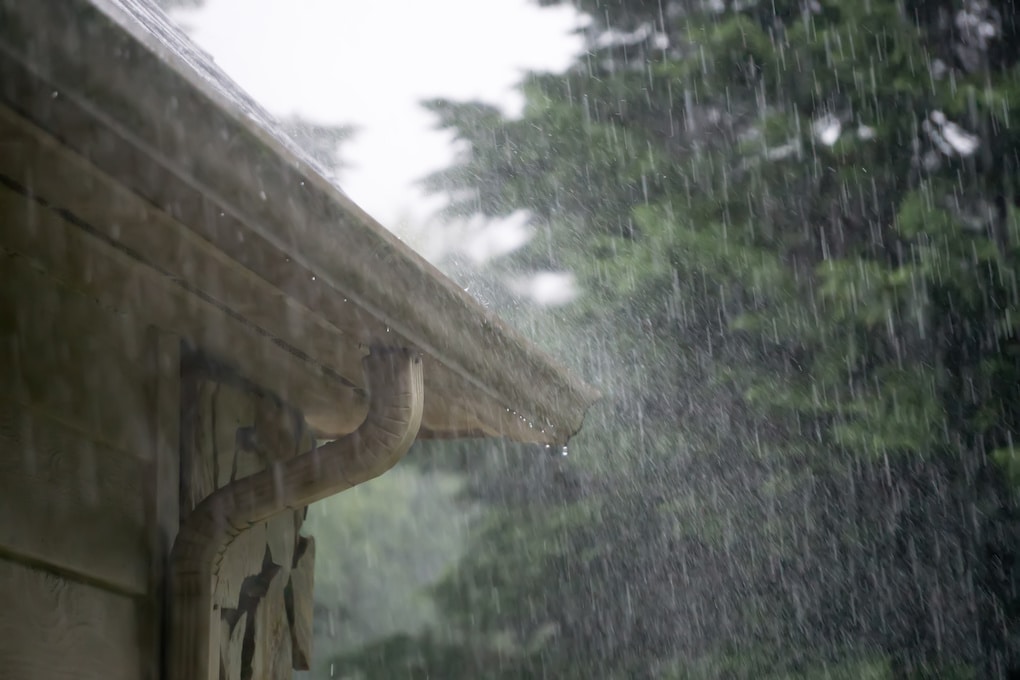
The Contractor You Choose
Lastly, the contractor you choose can vary in labor costs depending on their team’s size, expertise, and the type of roof they’re installing. Find yourself a contractor that is transparent about their labor costs and can include that in your estimate. But for the most part, you can expect labor costs to range from $1.50 to $3.75 per square foot baseline, but going up based on the project and material type.
How Much Does Each Roofing Materials Cost? And What Are the Benefits?
Now the fun part—the cost of each roofing material and what to expect from each. As you enter the more premium end of things, you do pay more upfront, but the benefits of having such a premium material often outweigh the high costs. But let’s find out for sure which roofing material is best for you and your budget.
Asphalt Shingles: $5,000 to 12,500
Asphalt shingles are definitely on the lower end of cost for a roof, but it doesn’t mean you are getting a bad roof. In fact, asphalt shingles are the most commonly installed roof in the United States for a reason. Benefits of an asphalt shingle roof include:
- Affordable
- Low-maintenance
- Easy to repair or replace
- Lasts up to 20 years
- Comes in a wide array of color and style options
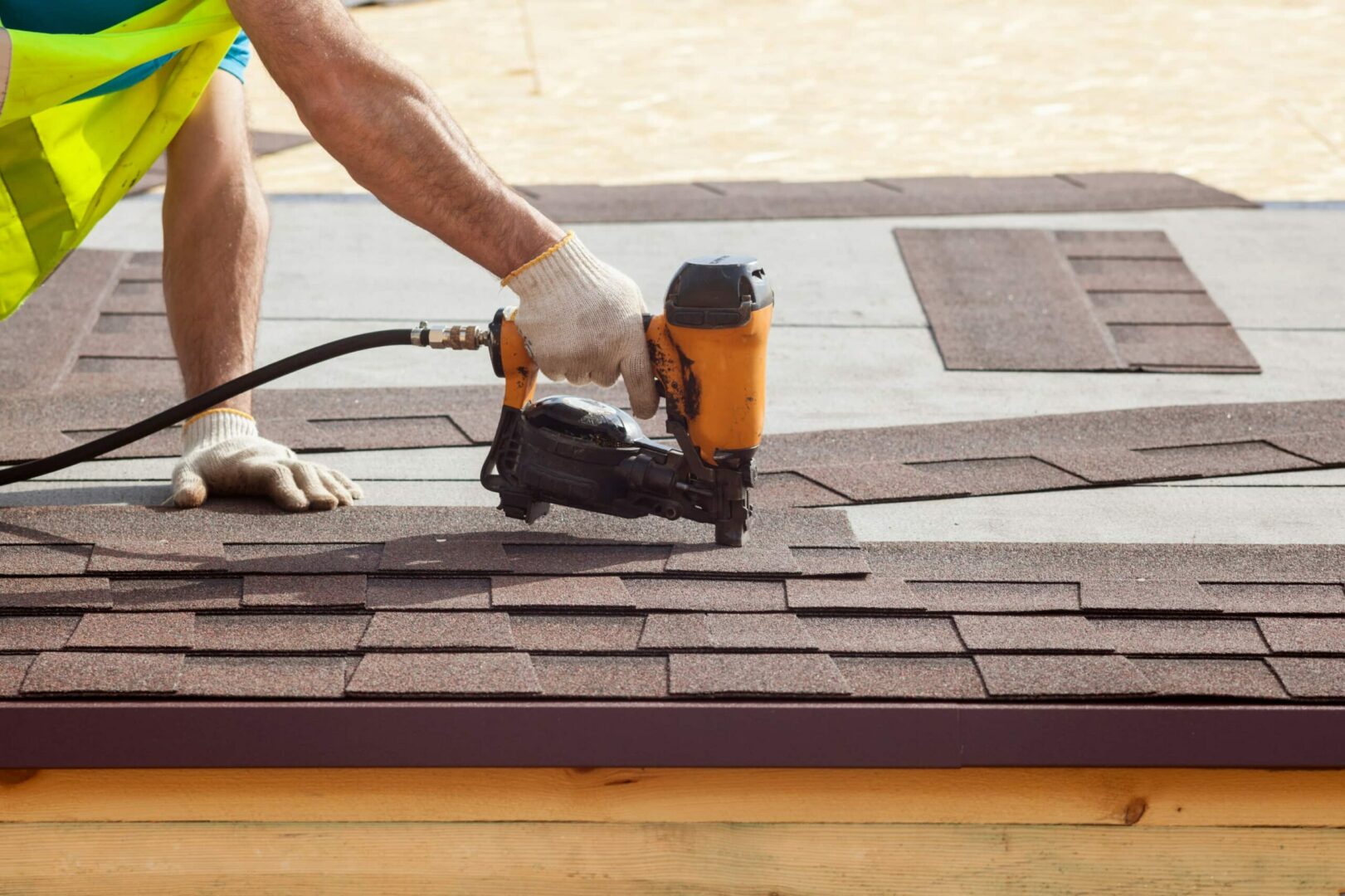
Architectural Shingles: $12,000 to $16,000
Architectural shingles are a more premium option than asphalt shingles. Though they may look similar to asphalt shingles, the difference is that they are designed for added beauty and protection over your home. Benefits of an architectural shingle roof include:
- Durable all-weather material
- Lasts up to 30 years
- Energy-efficient
Copper Roofing: $22,000 to $45,000
Copper is a premium option for roofing material for several reasons. It’s beautiful, durable, and lasts up to 100 years. Many buildings installed copper roofs in the 1920s that are still going strong today—decades before asphalt shingles were the popular choice. Benefits of a copper roof include:
- Extremely durable
- It lasts 60 to 100 years or more
- Resistant to fire, rot, and termites
- Ages beautifully into a green hue
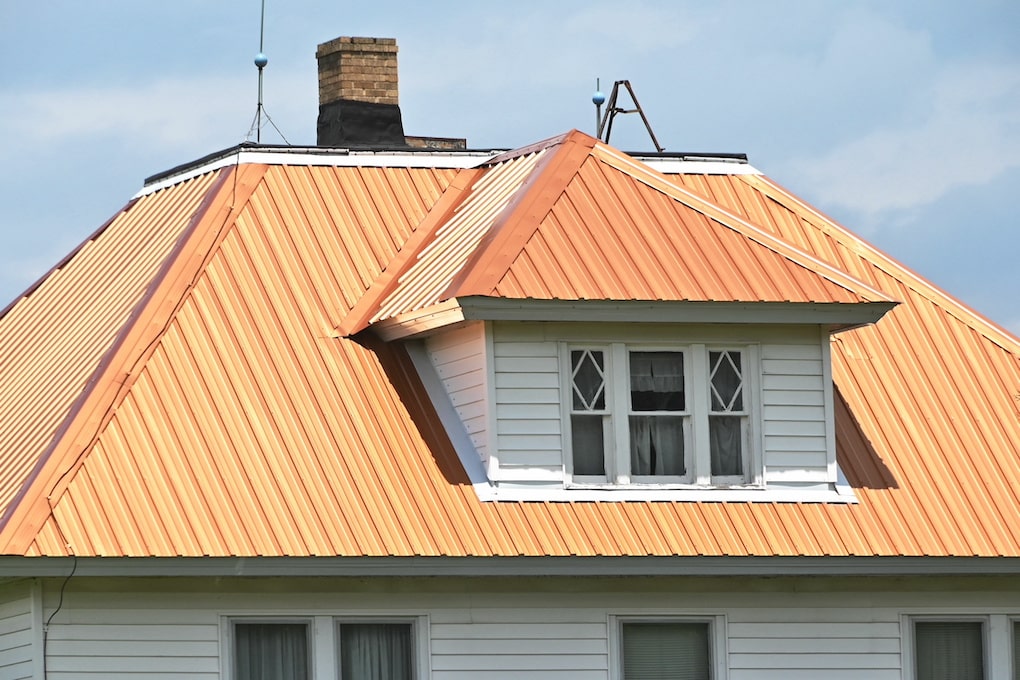
Corrugated Steel Panels: $10,000 to $19,000
Corrugated steel panels are typically installed on commercial structures, barns, sheds, etc., but can occasionally be used on residential properties. Benefits of corrugated steel panels include:
- High durability
- Easy to install
- Naturally insulating
- Low maintenance
- Environmentally friendly
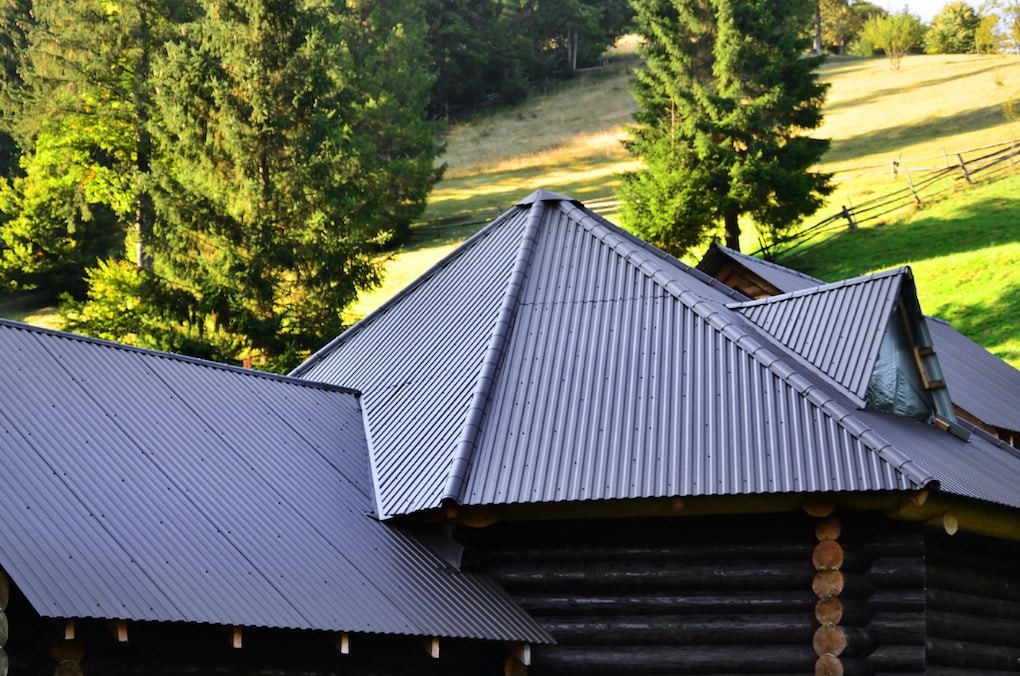
Cedar Wood Shakes: $14,000 to $25,000
Cedar shakes are a more premium option, especially for their unique appeal—but they don’t work with just any home. Cedar shakes can last anywhere from 30 to 50 years with proper installation and maintenance. Other benefits of cedar shake roofs include:
- Naturally durable material
- Resistant to moisture, UV rays, and even insects
- It’s a natural insulator
- Pleasing architectural aesthetic
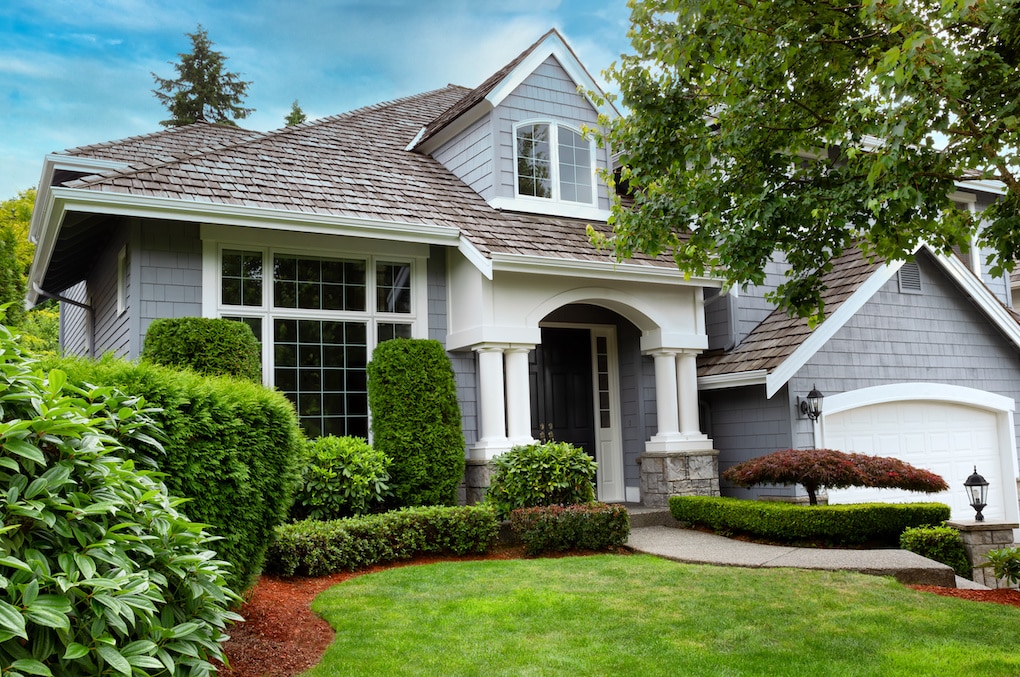
Clay Tiles: $24,000 to $50,000
Clay tiles are heavy and require a sturdy home to hold the weight, so they’re not for everyone, but they are one of the longest-lasting, most durable materials out there. Roofs made of clay may last up to a century(!), requiring little upkeep. Benefits include:
- Longevity (100+ years)
- Low maintenance
- Regulates temperature and insulates the home
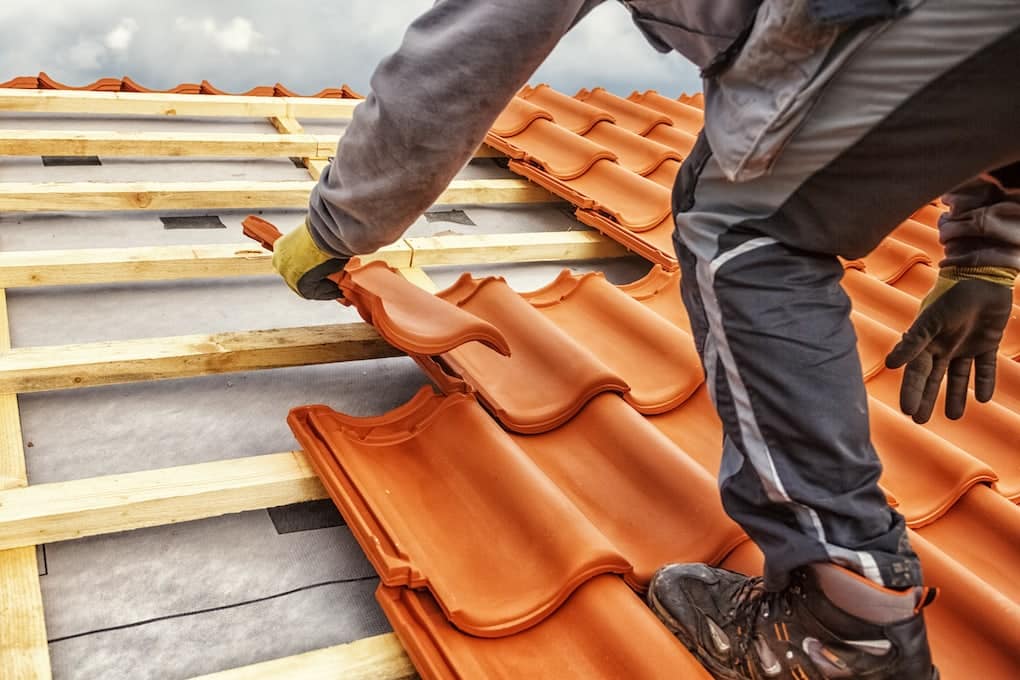
Concrete Tiles: $20,000 to $43,000
Concrete tiles are similar to clay in that they are highly durable and very long-lasting. They can even be formed and styled to look like other roofing materials, but with the added strength of concrete. Benefits include:
- Extremely high durability and lifespan (50+ years)
- Low maintenance
- Can withstand high winds, hail, fire, and insect damage
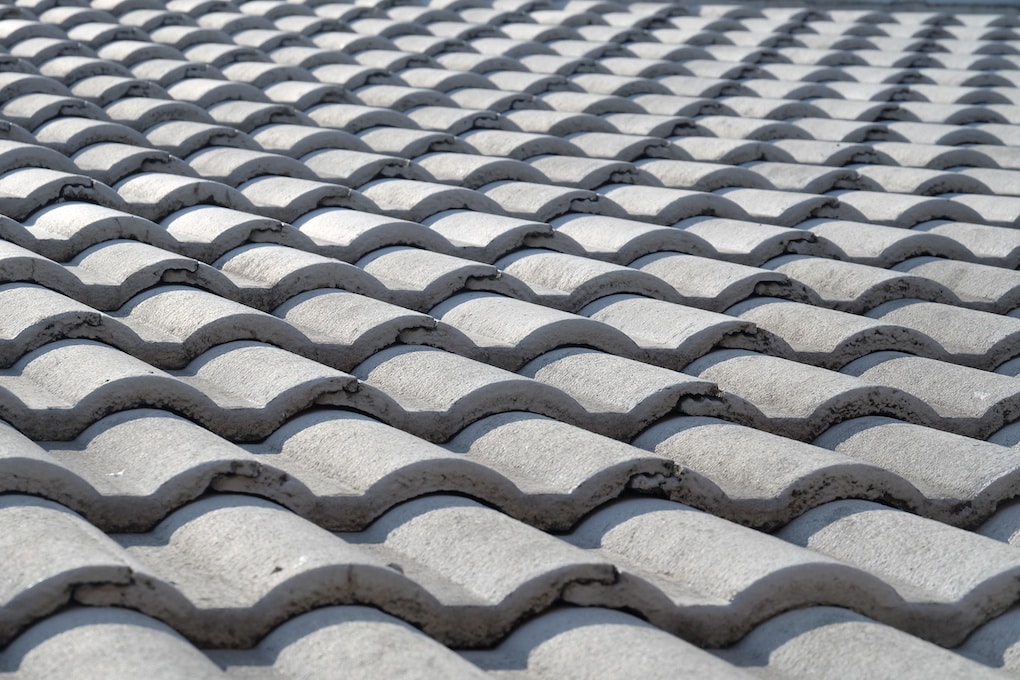
Flat Roof (TPO): $10,000 to $15,000
A TPO (Thermoplastic Polyolefin) flat roof is most often used for commercial use on big residential apartments or commercial buildings. They may sometimes be used as the roof on a garage or flat part of the home in residential situations. Benefits include:
- Affordability
- Low-maintenance
- Resistant to punctures, tears, or water damage
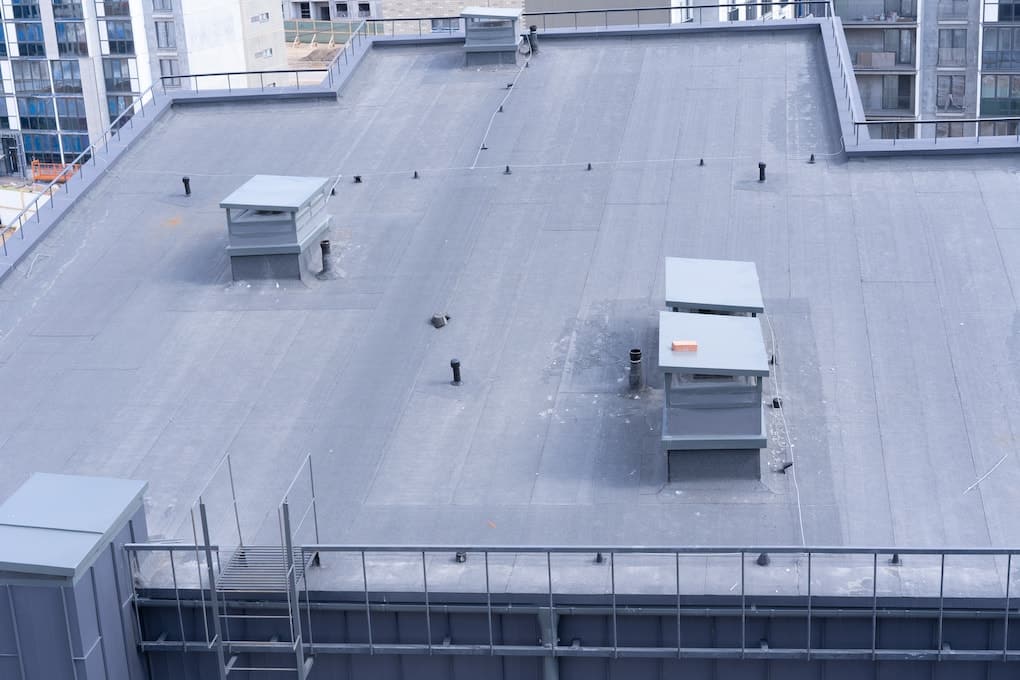
Green Roof: $15,000 to $40,000
A green roof is another type of flat roof that is more often used on residential homes because of its stylistic look and appeal. Green roofs use natural plant life to insulate the home and create a self-sustaining roofing system and water absorption. Benefits of using a green roof on your home include:
- Very low-maintenance
- Beautiful greenery to boost curb appeal
- Good for local wildlife and birds
- Offset carbon emissions in rural areas
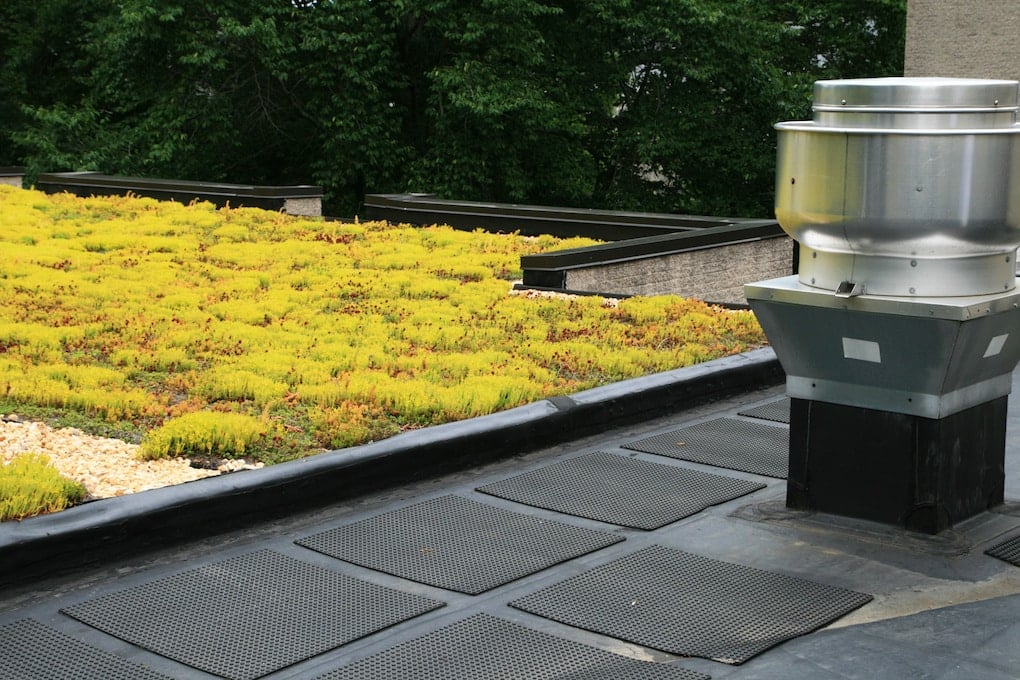
Metal Shingles: $11,000 to $15,000
Long ago were the days where metal roofs were just long, ugly panels. Now homeowners can install metal shingles that look like your basic shingle roof but with premium durability and a beautiful aesthetic. Benefits of installing metal shingles include:
- Sleek look to boost curb appeal
- Very strong against high winds and hail damage
- Long-lasting (50+ years)
- Easily recycled or repurposed at the end of its lifespan
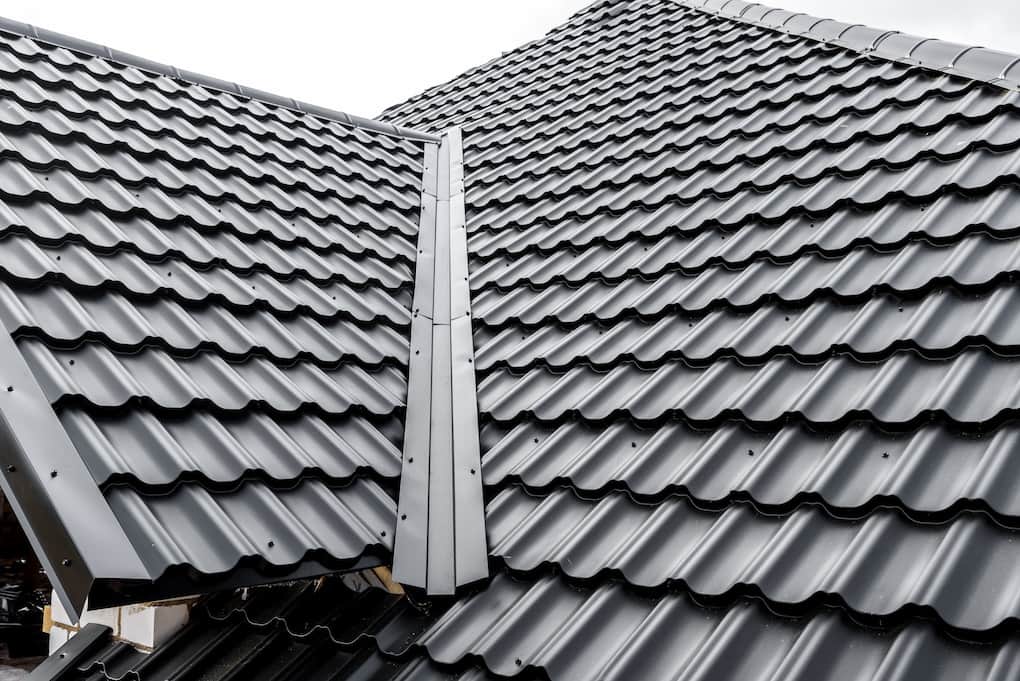
Rubber Shingles: $9,000 to $14,000
Rubber shingles, or composite shingles, are shingles made of a combination of recycled, organic, and inorganic materials to form a strong shingle that looks like premium materials (slate, clay, etc.) but at a much lower price tag. Benefits include:
- Eco-friendly
- Great for low-pitch roofs
- Less likely to crack than asphalt shingles
- Cost-effective
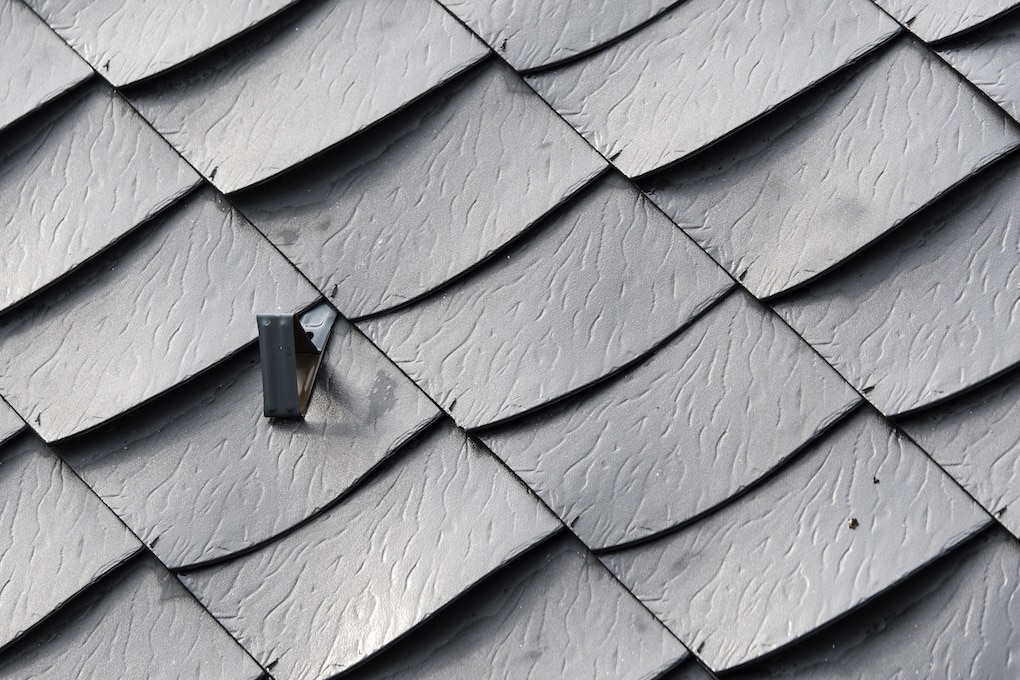
Slate: $25,000 to $50,000
Slate roofs are often called the forever roof because they can last virtually forever. As one of the oldest modern roofing materials used, you can find slate roofs all across Europe well over 100 years of age and still holding strong. Slate is a natural stone that can withstand just about anything and acts as an excellent insulator and protector for any home or building. Some of the many benefits of a slate tile roof include:
- They’ll last over 100 years
- They look beautiful
- Eco-friendly
- Naturally mold and fire-resistant
- Resistant against water absorption and damage
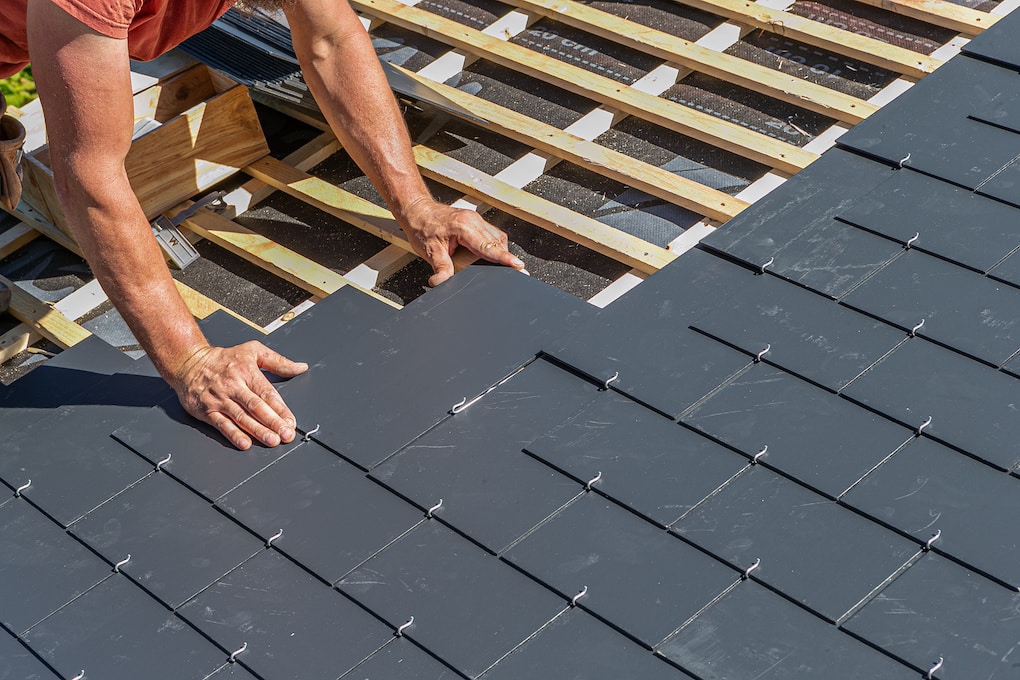
Standing Seam Metal Roof: $20,000 to $30,000
And lastly, a basic standing seam metal roof. You might often find these on a barn or shed, but modern homes have adopted standing seam metal roofs for a good reason. They can look fabulous on a high-pitch roof; they’re very strong and are great insulators. The benefits of a standing seam metal roof include:
- Cost-effectiveness
- Long-lasting (40-60+ years)
- Watertight
- Fire resistant
- Many color choices
- Immediate boost in the value of your home
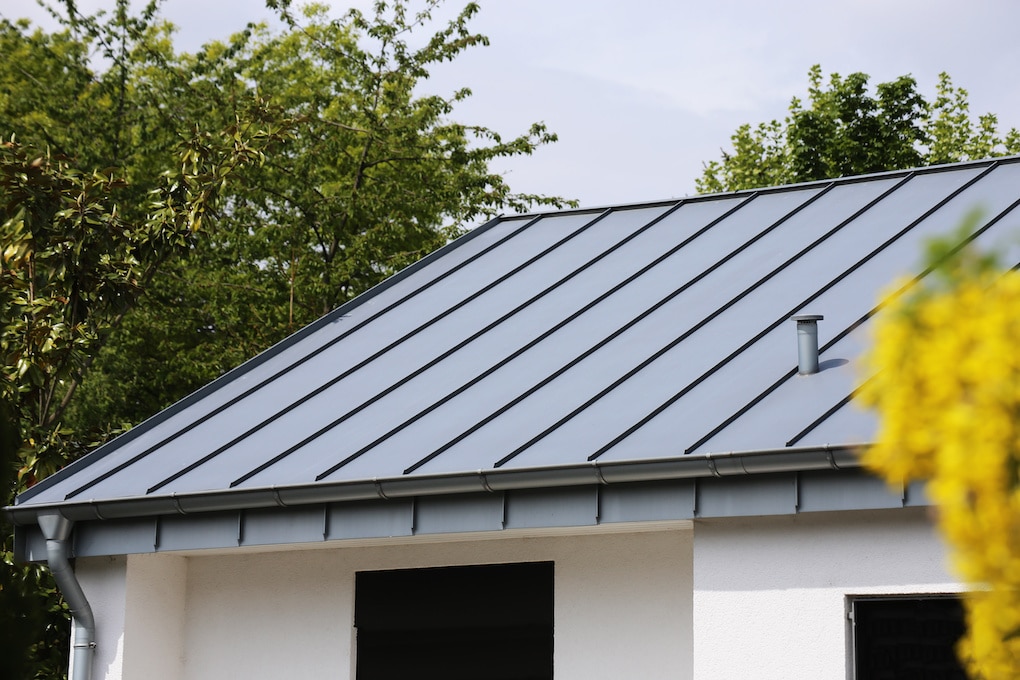
No matter which roofing material you choose, there are numerous benefits that each one offers beyond the price. When choosing the right roof for your home or commercial property, make sure to keep in mind what style best fits you and your family, think about how long it will be before you may need to replace the tile again if at all, and consider your long-term goals for your home.
If you want to invest in your home, premium materials can be your best choice. But if you want something easy to maintain with low commitment, in the long run, a standard asphalt shingle roof can do the job and save you a lot of money upfront.
Either way, one of the best things you can do for your new roof is to hire the right contractor—that’s where we come in. Apple Roofing will be there to guide you through the entire process of your roof replacement.
We can inspect your home, assess your budget, meet your goals, and get you the roof you deserve. Schedule your FREE estimate here.

